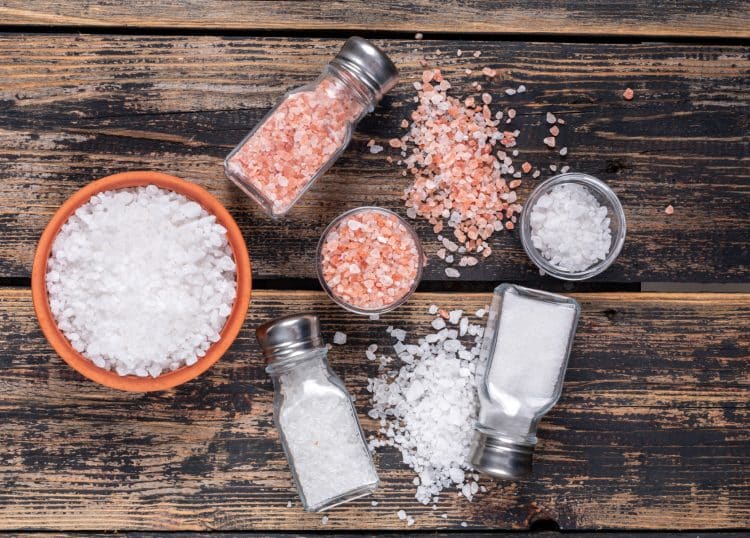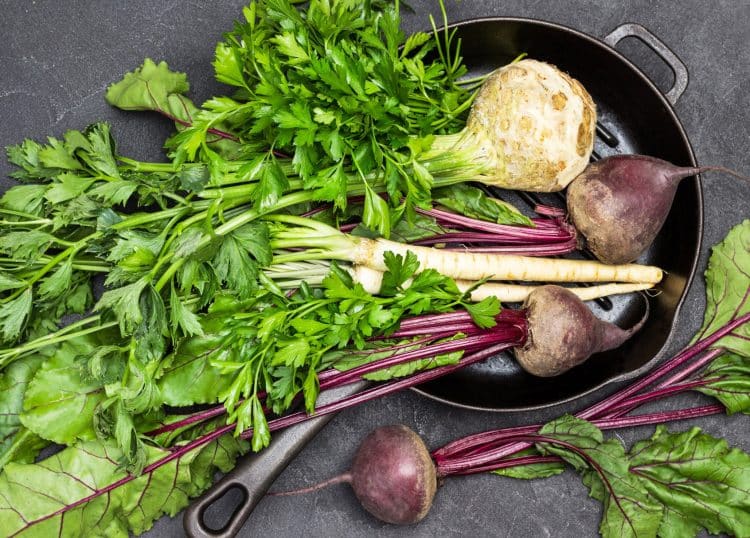Most people who have followed a weight loss program are probably aware of the horrors of watching the weight scale’s needle budge in the wrong direction. Many people blame food and sugary drinks for their weight gain. However, what you are going to read next might surprise you. The world’s number one calorie-free beverage — water — might be behind your bulging waistline.
Water weight gain, also known as bloating, is a common phenomenon amongst people of all ages. Your body is 50-70 percent water. Staying hydrated ensures optimal body functioning, including maintaining your body temperature, cushioning your joints, and getting rid of waste.
However, any excess water is considered water weight. It is not uncommon for people to gain up to 4-5 pounds of water weight in a couple of days.
Besides your midsection, water weight can appear in your feet, ankles, or even your fingers. Now, you don’t need to chug a gallon of water every few hours to gain water weight. You could prime your body to hold water weight by devouring alcohol, staying in a calorie surplus for an extended period, or making junk food a part of your daily routine.
Per a study, an average person holds between 5-10 pounds of water weight. However, it could differ based on age, gender, diet, and body composition. [1]
Pro athletes, especially bodybuilders, keep an eye on their water weight. Many athletes even follow specific weight-cutting strategies to make weight for a contest. They then try to put the weight back on before the show to have an edge over their opponents.
Changing your diet and training routine can help get rid of puffiness. Plus, this article throws light on the ways you can prevent fluid build-up.
Water Weight Gain Causes
Before we get into how to lose water weight, let’s discuss what causes edema in the first place, as it can help us stay away from bloating.
1. Excess Sodium Intake
Salt is one of the primary culprits behind fluid retention in the body. It acts as a water magnet. Although the CDC recommends eating 2,300 milligrams of sodium per day, our bodies can function optimally with 200 milligrams of the compound.

As mentioned above, bodybuilders and athletes like MMA fighters, boxers, and wrestlers usually cut out sodium from their diet to make weight for a contest.
The electrolyte sodium attracts water in the spaces outside your cells and in your plasma, meaning sodium-laden foods force your body to store water in your tissues.
Although cutting back on sodium is a popular solution to the water weight problem, you should take this advice with a grain of salt — pun intended. Going too hard on the sodium cut can lead to:
- A fall in blood pressure.
- Hyponatremia — It can cause nausea, vomiting, headache, confusion, fatigue, drowsiness, irritability, restlessness, muscle weakness, and cramps.
- Increased insulin resistance — It can cause elevated blood sugar and insulin levels. It can result in type 2 diabetes and other dangerous disorders.
2. Going Overboard with Carbs
Carbs and sodium are the frontrunners in making your body hold water. Excess carbs in your muscles and liver are stored as glycogen — your body’s preferred energy source. Carbohydrates can also lead to a spike in your insulin levels which can increase sodium retention and reabsorption of water in the kidneys.
Furthermore, a gram of glycogen contains about 3g of water. Cutting carbs from your diet can lead to quick water weight loss.
3. An Inactive Lifestyle
Sedentary people are at a higher risk of putting on weight. Staying active throughout the day can lower your chances of gaining water weight. If you cannot make time for the gym, the least you can do is walk 10,000 steps a day. It will help burn calories and raise your metabolic rate, which can help fix your bloating.

4. Some Medications
Medicines that manage high blood pressure, such as calcium channel blockers, corticosteroids, and nonsteroidal anti-inflammatory drugs (NSAIDs) can also cause water retention.
5. Hormone Imbalance
Hormone fluctuations can cause water retention in the body. Women might also experience fluid build-up during the luteal phase of their menstrual cycle and pregnancy. [2]
6. Health Issues
While gaining 4-5 pounds of water weight in a week can be considered normal, you should always be alert and look for abnormalities in your condition.
For example, although harmless, excess water retention, also known as edema, can signal serious medical conditions, such as heart, liver, or kidney disease. [3]
How To Lose Water Weight
Contrary to what many think, water weight loss is not the same as fat loss. While you might see the weight scale tip in the right direction as you lose water weight, your body composition might remain the same. Given below are a few effective ways of getting rid of bloating:
1. Regular Exercise

Physical exercise promotes blood flow and circulation throughout the body. It also makes you sweat, which helps shed excess water. However, ensure you are rehydrating aptly after training to keep dehydration at bay.
An average adult should train for at least 15-30 minutes a day. People with desk jobs especially have no excuse to skip exercise. Beginners could do one 15-30 minute LISS (low-intensity steady state) cardio session a day. On the other hand, more experienced folks could add a 10-minute HIIT (high-intensity interval training) session to the mix for optimal water weight loss.
2. Mind the Salt
You probably know by now that sodium is not your friend if you want to shed water weight. Reduce your daily sodium intake by consuming less processed meat, salted nuts, preserved foods like canned food and pickles, packaged soup, and sauces. Hiding your salt shaker is an effective way of lowering your sodium intake.
3. Cut the Carbs
Water weight is a common problem for people on a bulking diet. Many dieters swell up as soon as they switch to a high-carb diet. It is not because of the macro build-up; a carb-rich diet makes your cells soak water like a sponge, making you look soft and watery.
Cut carbs considerably to shed water weight and add definition. Furthermore, you should never get more than 40 percent of your calories through carbs if your goal is to build muscle mass.
4. Give Up Processed Foods
Processed foods like processed meat, preserved foods like canned food and pickles, packaged soup, and sauces are loaded with sodium. Avoiding junk food can also work towards your water weight loss goals.
5. Fall in Love With Caffeine
Caffeine is one of the most undervalued tools in the fight against bloating. Caffeinated beverages like tea and coffee are natural diuretics and can help lose water weight. A diuretic is any substance that promotes urine production, which aids in shedding water weight. [4]
6. Add Certain Foods and Herbs To Your Routine
Your diet should consist of nutrient-dense whole foods if you are serious about your weight loss goals. Determine a daily caloric intake goal and use a balanced macronutrient split to achieve your dream physique.
Corn silk, horsetail, parsley, hibiscus, fennel, nettle, beets, celery, asparagus, and alfalfa are a few foods that should be on your grocery list for their diuretic and hydration benefits.

7. Bump-Up Potassium Intake
Potassium is abundant in fruits and vegetables like leafy greens, beans, nuts, dairy foods, and starchy vegetables. It is an important electrolyte that can help regulate your body’s fluid balance.
Potassium helps counter sodium’s effects by increasing urine production, which could prevent water retention and fluid build-up.
8. Use a Magnesium Supplement
Magnesium is gaining popularity in the health and sports market. It is an electrolyte and mineral that can ease symptoms of premenstrual syndrome (PMS), including water retention.
9. Add a Dandelion Supplement To Your Routine
Taraxacum officinale, also known as dandelion, is a herb used in alternative medicine to treat water retention. It is one of the most popular supplements amongst pro athletes who need to make weight for a contest or are getting ready for a photoshoot.
Dandelion acts like a diuretic by encouraging your kidneys to expedite flushing out water and sodium from your body. A study proved that a dandelion supplement increases the frequency of urination over five hours. [5]
10. Stress Less
Cortisol is our body’s natural stress-coping mechanism. Cortisol, a hormone, regulates our metabolism and immune response. Our cortisol levels fluctuate when we are under stress. Higher cortisol levels lead to a spike in the body’s fat reserves, a drop in metabolism, and greater water retention.
11. Sleep More
Sleep for 7-8 hours every day to allow your body time to recover optimally. A study based on 20,000 subjects concluded that sleeping less than six hours a day puts the participants at a greater risk of inadequate hydration than sleeping eight hours a day. [6]
12. Prescription Water Pills (Diuretics)
Prescription water pills, or diuretics, nudge your kidneys to flush out excess water and sodium through urine. These pills are normally not prescribed to people feeling a bit bloated but are reserved for folks with cardiovascular and pulmonary issues to help reduce fluid retention and swelling.
Diuretics are extremely potent substances. The use of diuretics in professional bodybuilding is surrounded by controversy. The eight-time Mr. Olympia champion Ronnie Coleman is one of the most vocal critics of diuretics in pro bodybuilding and has called for a ban on the substance.
A Word of Caution
Many people get obsessed with their weight loss goals. While you should track your progress regularly, stepping on the scale every day isn’t the best idea. Losing water weight requires time, patience, and dedication. You should measure your weight once a week at the same time, wearing the same clothes. Anything more or less is suboptimal.
Different people might react differently to the 12 methods to lose water weight mentioned in this article. You need to try each one and stick with what works best for you.
Do Not Cut Down on Water
Many people make the blunder of limiting their daily water intake to lose water weight. While this might sound logical, it has the exact opposite effect on your body.
If you don’t drink enough water each day, your body holds onto water to prevent dehydration. Plus, a study found that drinking 500 milliliters, or 17 ounces, of water before a meal tricks your body into losing more weight naturally. [7]
Drink at least a gallon of water every day to ensure optimal body functioning. Your water intake goal might vary slightly depending on your age, weight, height, activity level, and sex. Check out our convenient online water intake calculator to determine your optimal daily water goal.
When To See a Doctor
Sometimes water weight is a sign of a more severe problem. You should visit a doctor if your body, arms, and legs are frequently swollen and or if your water retention feels severe, painful, or random.
Frequently Asked Questions
What is water weight?
Your body is made up of 50-70 percent water. Anything more than this is known as water weight.
What diets affect water weight?
Low-carb diets are very effective at helping you shed water weight. Experts believe a dieter loses up to 70 percent of water weight in the first week of a low-carb diet. The remaining water weight comes off in the next 2-3 weeks.
Can staying in a calorie-deficit help lose water weight?
Your body burns glycogen as fuel when you are in a calorie deficit, meaning you expend more calories in a day than you consume. Water binds to glycogen which makes you look bloated. Hence, you’ll see a drop in water weight as you burn through your glycogen reserves.
How to know if you are losing water weight or fat?
If your weight fluctuates a lot and your weight loss is quick, then you are probably losing water weight. On the flip side, if you notice you are getting leaner because of a balanced, low-calorie diet and exercise regimen, you are most likely losing body fat. Notably, the fat loss process takes much longer.
Wrapping Up
The human body is made up of 50-70 percent water. Hence, you shouldn’t go overboard trying to lose water weight as it can interfere with your daily functioning. [8]
This article discussed six of the most popular causes of water weight gain and 12 ways to fix it. Remember: A temporary water fluctuation usually leaves just as quickly as it arrived.
References
- Vij VA, Joshi AS. Effect of excessive water intake on body weight, body mass index, body fat, and appetite of overweight female participants. J Nat Sci Biol Med. 2014 Jul;5(2):340-4. doi: 10.4103/0976-9668.136180. PMID: 25097411; PMCID: PMC4121911.
- InformedHealth.org [Internet]. Cologne, Germany: Institute for Quality and Efficiency in Health Care (IQWiG); 2006-. Causes and signs of edema. 2008 Nov 5 [Updated 2016 Dec 30]. Available from: https://www.ncbi.nlm.nih.gov/books/NBK279409/
- Tobias A, Ballard BD, Mohiuddin SS. Physiology, Water Balance. [Updated 2022 Oct 3]. In: StatPearls [Internet]. Treasure Island (FL): StatPearls Publishing; 2022 Jan-. Available from: https://www.ncbi.nlm.nih.gov/books/NBK541059/
- Seal AD, Bardis CN, Gavrieli A, Grigorakis P, Adams JD, Arnaoutis G, Yannakoulia M, Kavouras SA. Coffee with High but Not Low Caffeine Content Augments Fluid and Electrolyte Excretion at Rest. Front Nutr. 2017 Aug 18;4:40. doi: 10.3389/fnut.2017.00040. PMID: 28868290; PMCID: PMC5563313.
- Clare BA, Conroy RS, Spelman K. The diuretic effect in human subjects of an extract of Taraxacum officinale folium over a single day. J Altern Complement Med. 2009 Aug;15(8):929-34. doi: 10.1089/acm.2008.0152. PMID: 19678785; PMCID: PMC3155102.
- Asher Y Rosinger, Anne-Marie Chang, Orfeu M Buxton, Junjuan Li, Shouling Wu, Xiang Gao, Short sleep duration is associated with inadequate hydration: cross-cultural evidence from US and Chinese adults, Sleep, Volume 42, Issue 2, February 2019, zsy210, https://doi.org/10.1093/sleep/zsy210
- Dennis EA, Dengo AL, Comber DL, Flack KD, Savla J, Davy KP, Davy BM. Water consumption increases weight loss during a hypocaloric diet intervention in middle-aged and older adults. Obesity (Silver Spring). 2010 Feb;18(2):300-7. doi: 10.1038/oby.2009.235. Epub 2009 Aug 6. PMID: 19661958; PMCID: PMC2859815.
- Nose Y, Fujita K, Wada T, Nishimura K, Hakoda M. Effects of Menstrual Cycle Phase on Fluid Regulation during Walking Exercise. J Sports Sci Med. 2020 Aug 13;19(3):556-563. PMID: 32874109; PMCID: PMC7429427.


